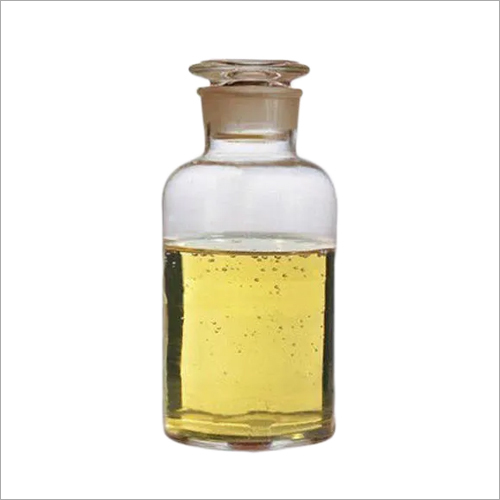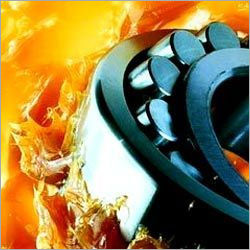
Zinc Dialkyldithiophosphate
270 INR/Kilograms
Product Details:
- Color Yellow
- Type Liquid
- Use Used as machine lubricants
- Oil Type motor oil
- Pack Type Drum
- Click to view more
X
Zinc Dialkyldithiophosphate Price And Quantity
- 25 Kilograms
- 270 INR/Kilograms
Zinc Dialkyldithiophosphate Product Specifications
- motor oil
- Drum
- Liquid
- Used as machine lubricants
- Yellow
Zinc Dialkyldithiophosphate Trade Information
- 100 Kilograms Per Day
- 6 Days
Product Description
Zinc Dialkyldithiophosphate is a premium grade chemical additive which is used as an anti-wear agent for the lubricants to reduce the abrasion in between the machine parts that moves relative to each other at higher speeds. It is used for the formulation of various types of lubricants which includes greases, hydraulic oils, and motor oils. The offered industrial chemical is free from solid impurities and other unwanted substances which results in higher purity up to 99 percent.
FAQ:
Q. What is ZDDP, and what does it do?
Ans: ZDDP stands for Zinc Dialkyldithiophosphate, which is a chemical compound added to motor oils and lubricants. It functions as an anti-wear and anti-oxidation agent, reducing friction and protecting engine parts from wear and corrosion.
Q. Why is ZDDP used in motor oils?
Ans: ZDDP is used in motor oils because it forms a protective film on metal surfaces, particularly in high-stress areas of an engine. This film prevents metal-to-metal contact, reducing wear and extending the life of the engine.
Q. Is ZDDP only used in motor oils for older engines?
Ans: While ZDDP was more commonly used in older engine designs, it is still used in modern motor oils, although in different formulations and concentrations. Newer engines have different metallurgy and engineering that may require less ZDDP, but it is still an important component of many motor oils.
Q. Can I use motor oil without ZDDP in an older engine?
Ans: It is generally safe to use motor oil without ZDDP in many older engines, but it may lead to increased wear on engine parts over time. If you have a classic or high-performance vehicle, you might want to consider using an oil with an appropriate ZDDP concentration.
Q. What are the potential drawbacks of using motor oil with high ZDDP levels?
Ans: Using motor oil with excessively high levels of ZDDP can lead to problems with catalytic converters in modern vehicles, as ZDDP can poison the catalysts. This is less of an issue in older vehicles that lack these components.
Q. Are there alternatives to ZDDP in motor oils?
Ans: Yes, there are alternative anti-wear additives, such as molybdenum disulfide and boron compounds, but they work differently from ZDDP. The choice of additive depends on the specific requirements of the engine and the oil formulation.
Q. Does ZDDP have any environmental impact?
Ans: ZDDP can have environmental implications, as it can contaminate soil and water if not disposed of properly. Used motor oil should be recycled or disposed of in an environmentally responsible manner to prevent pollution.
Q. How can I determine the ZDDP content in a motor oil?
Ans: The ZDDP content in motor oils is not always readily available on the label, but you can usually find it in the product's technical data sheet or by contacting the manufacturer. Some oil brands specifically market oils with higher ZDDP content for older or high-performance engines.
Q. Is ZDDP necessary for all engine types?
Ans: ZDDP is not equally necessary for all engine types. Its importance depends on the engine's design, age, and intended use. Modern engines may require less ZDDP due to their improved materials and engineering.
Q. Can I add ZDDP supplements to my motor oil?
Ans: While you can add ZDDP supplements to your motor oil, it's generally not recommended unless you have a specific reason and understand the potential consequences. Excessive ZDDP levels can lead to problems, so it's best to choose the right motor oil for your engine's needs.
Tell us about your requirement

Price:
Quantity
Select Unit
- 50
- 100
- 200
- 250
- 500
- 1000+
Additional detail
Mobile number
Email







